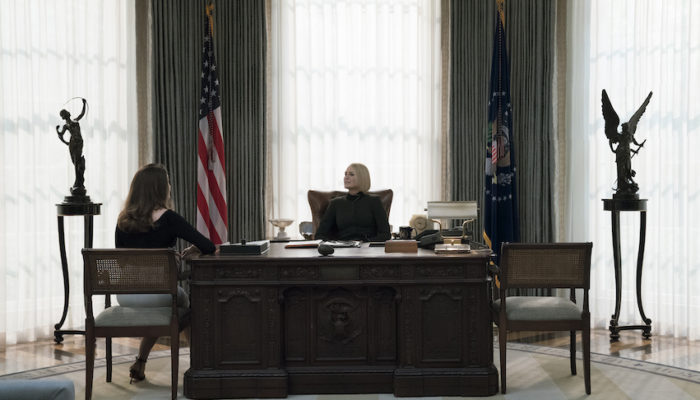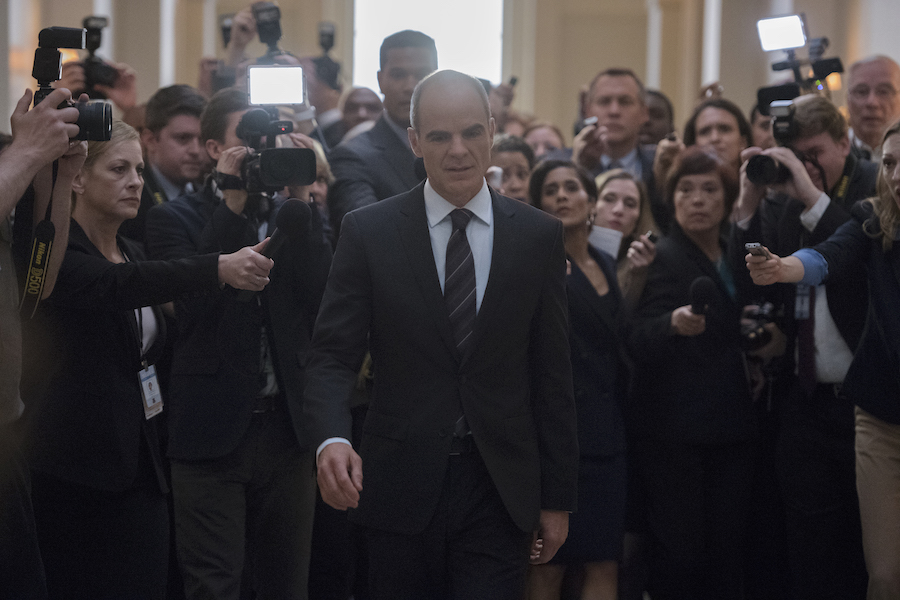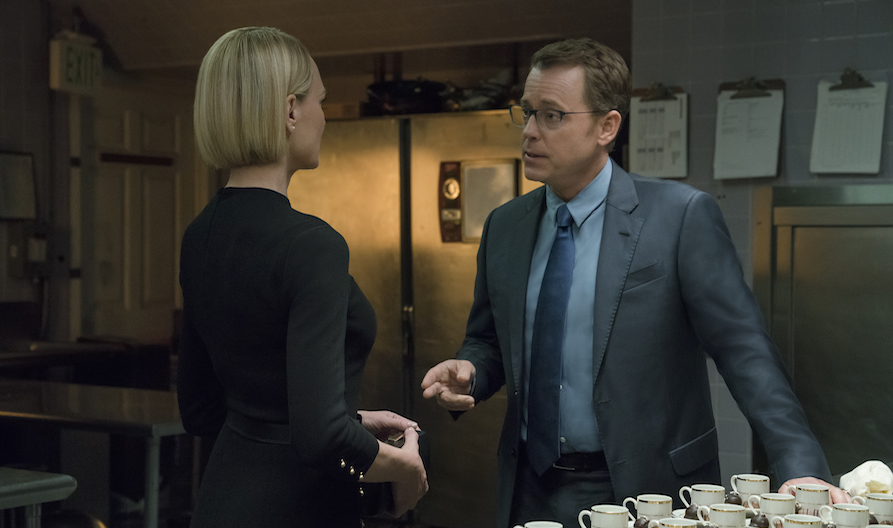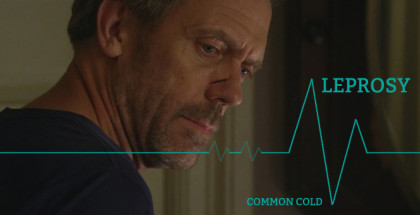Netflix UK TV review: House of Cards Season 6 (spoilers)
Review Overview
Politics
5Dialogue
7Focus
4Chris Bryant | On 08, Nov 2018
Warning: This contains spoilers for House of Cards Season 6. Not caught up? Read our spoiler-free review of the opening episode here.
“I’m not taking orders anymore.”
Closing out the final moments of House of Cards’ last season, Robin Wright’s President speaks the phrase “There. No more pain.” Both as a commentary on the scandalous ending and a call-back to her husband’s fondness for speeches on the subject, it’s a fitting end for a show that’s always focused on suffering versus goals. Beyond the final sentence, however, Netflix’s epic of political domination finds itself unfocused, over-complicated, and with an uncomfortable tendency to dwell on the ghost of Presidents past.
While Wright’s performance as Claire Hale-Underwood is a suitable anchor for this final season, there’s little else but chaotic sea surrounding her seemingly unsinkable ship. As the show has progressed, its body count has risen dramatically, unfortunately losing impact with each hit. Season 6 is an emotionless massacre of characters – new and old – and even the concluding death of Doug Stamper (Michael Kelley) feels underwhelming, compared to the terror and awe that Peter Russo’s (Corey Stoll) demise elicited in Season 1.
Introducing new foes and new problems is a theoretic win for Cards’ revamped sixth season. Having Claire facing new battles and troubles avoids the difficulty of House of Cards’ overlapping with Fox News, but the decision to cover new ground while ensuring all the old ground gets a resolution simply leaves the show short on time, and results in some confusing allegiances. Every thread, new and old, feels rushed and temporary – before a twist, threat, or betrayal can really sink in, it’s outsmarted, blocked, or reneged.
So many new faces and agendas leave a lot of the cast without any emotional weight to their work – although Greg Kinnear’s performance as Bill Shepherd deserves specific praise – and scenes that could have held immense tear-jerking and cushion-gripping power are lost among a wave of new, conflicting information and ever-vaguer dialogue. Dropping a few feminist battle-cries blurs the work even further – seeing Claire as a proud icon or someone utilising a revolution for her own ends would have been a jaw-clenching spectacle, but whatever message was being sent was lost in the disarray.
Quickly tying off the loose ends of story threads as they are created, it’s clear that these eight episodes required a single issue to be dealt with, be it the intriguing Shepherd family or old favourite President Petrov (Lars Mikkelsen), but the onslaught of threats – foreign and domestic – is simply too much. Regrettably, House of Cards’ conclusion feels complete but unsatisfying. Mirroring the endless cycle of personal warfare, promises and perils that currently occupies Western politics, Netflix’s political drama fails to force perspective towards a single goal – which is why we fell in love with the Underwoods in the first place.
House of Cards Season 6 is available on Netflix UK, as part of an £9.99 monthly subscription.





















